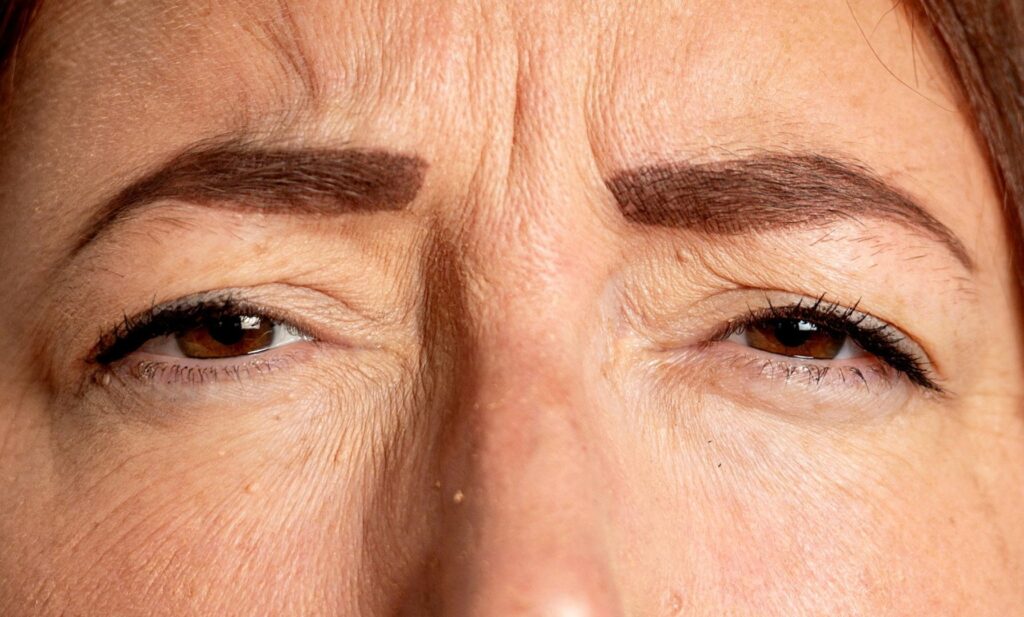HALF of Brits have fallen victim to ‘resting squint face’ – the habit of narrowing their eyes and furrowing their brows while trying to focus on screens and devices.
A poll of 2,000 people found this has led to some awkward misunderstandings, as 27 per cent have been mistaken for being rude or standoffish when they were just squinting to see clearly.
While others said the squinting makes people look uncomfortable (19 per cent), confused (14 per cent), or tense (13 per cent).
With one in six actively avoiding approaching someone who looks like they’re squinting – whether that’s asking for directions, the time, or even just making eye contact.
And 17 per cent of workers said colleagues find them less approachable when they’re squinting.
One in five (21 per cent) even went as far as to say it makes them appear angry.
But it appears to be a common occurrence, with 87 per cent of Brits staring at screens for more than an hour a day.
The research was commissioned by Specsavers, which coined the phrase ‘resting squint face’, and created a video showcasing the everyday mishaps caused by excessive squinting.
Dr Josie Forte, an optometrist for the brand, said: “Most of us will develop presbyopia as we age due to subtle changes in the eye’s lens.
“Squinting – whether at a screen, when reading, or using a phone – is often an early sign.
“Presbyopia is a natural part of ageing and nothing to fear, but it’s important to see an optician if you’re squinting regularly or relying on habits like holding things at arm’s length.”
The poll also uncovered some truly embarrassing moments to come from poor vision.
From waving to the wrong person (13 per cent), to sending an email riddled with spelling mistakes (nine per cent) or tripping or bumping into objects (eight per cent).
Further to causing embarrassment, screen habits are also leading to physical symptoms such as eye discomfort, reported by 45 per cent.
More than a third (37 per cent) have had headaches and 31 per cent experienced blurred vision due to staring at a screen for longer than an hour.
Plus, 42 per cent of those polled, via OnePoll, are worried all that squinting could lead to wrinkles.
And despite being a common ailment, only 27 per cent of those asked had actually heard of presbyopia, which could be indicated by excessive squinting.
Dr Josie Forte from Specsavers added: “The good news is it’s easily corrected – an eye test can confirm the cause, and your optician can recommend the best solution, from reading glasses to varifocals or contact lenses, so you can see clearly again.”


